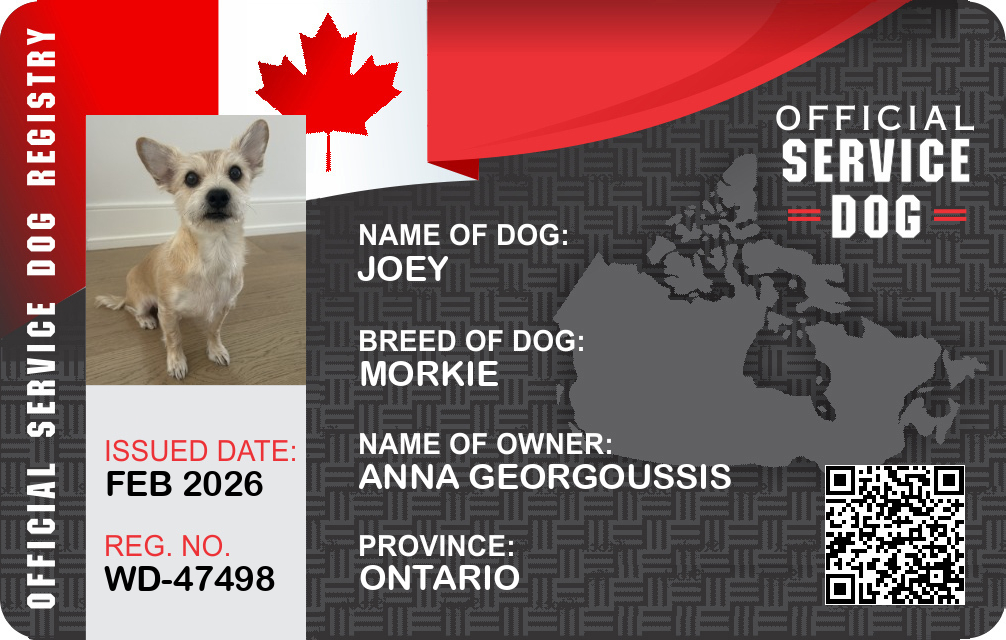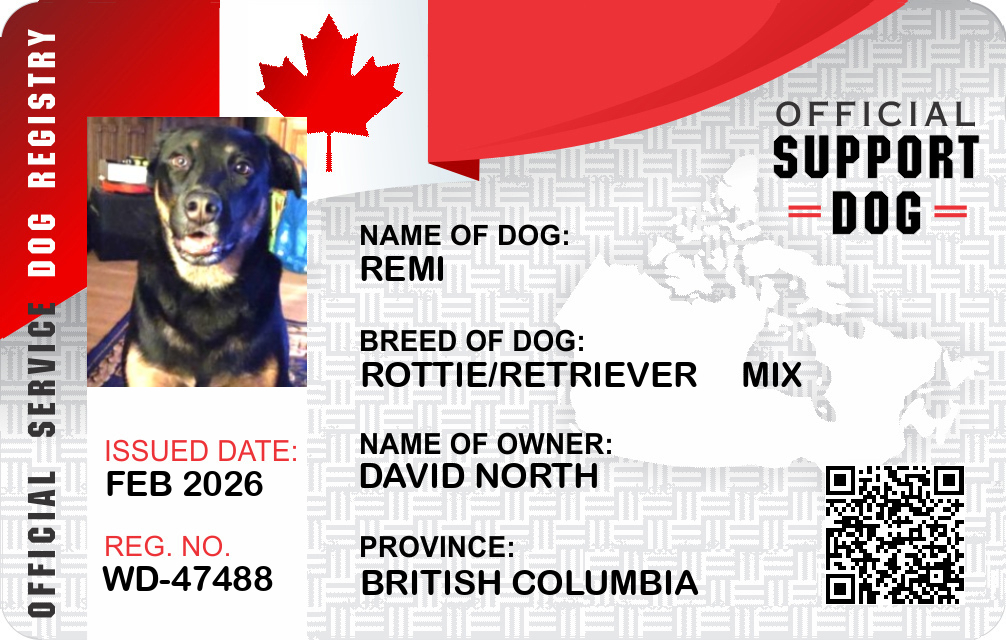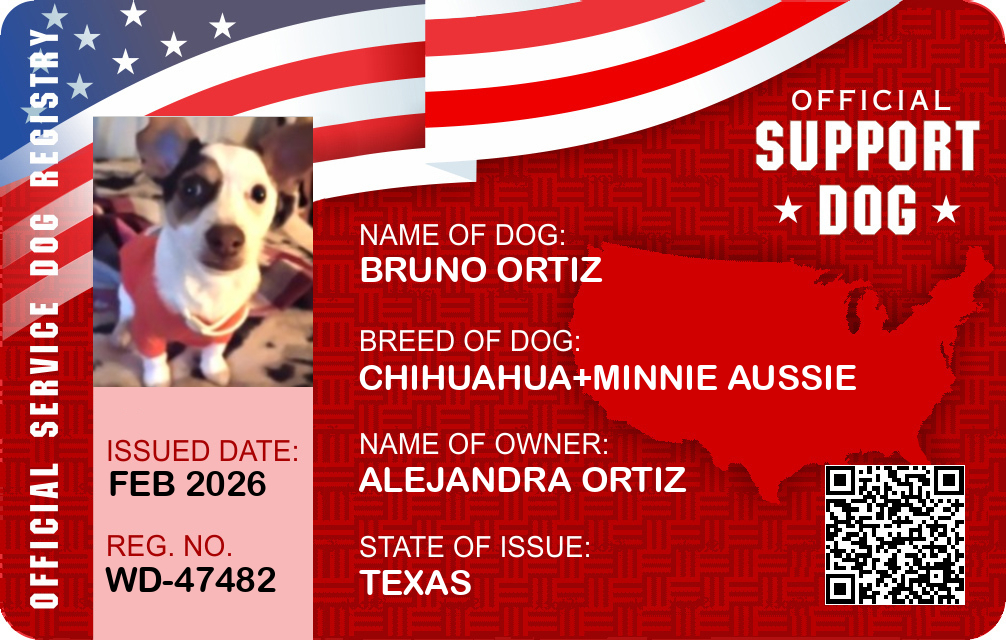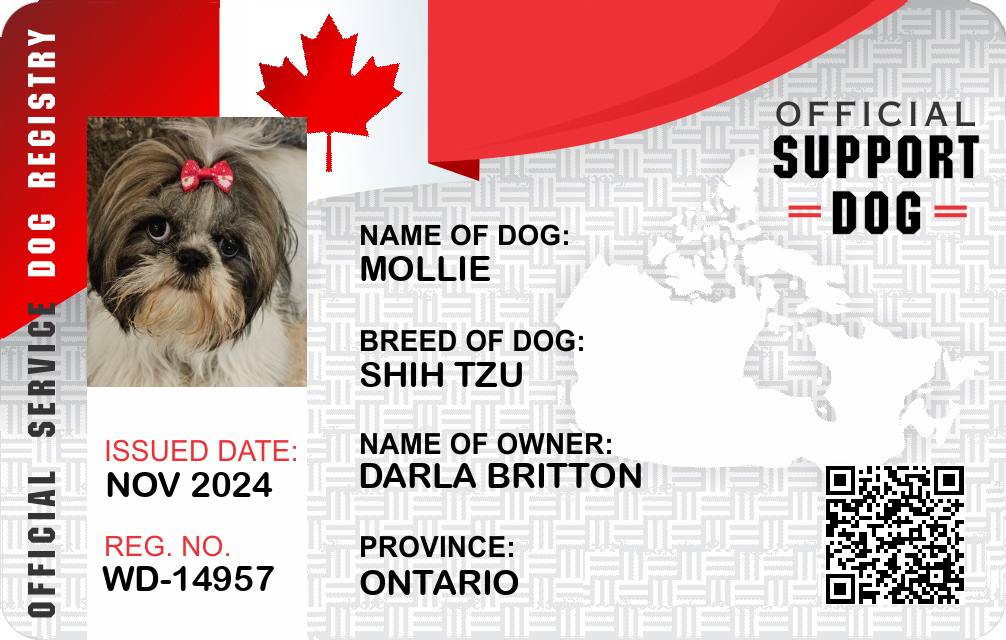Ohio Service Dog Laws
Get Your Documents
Example State Cards

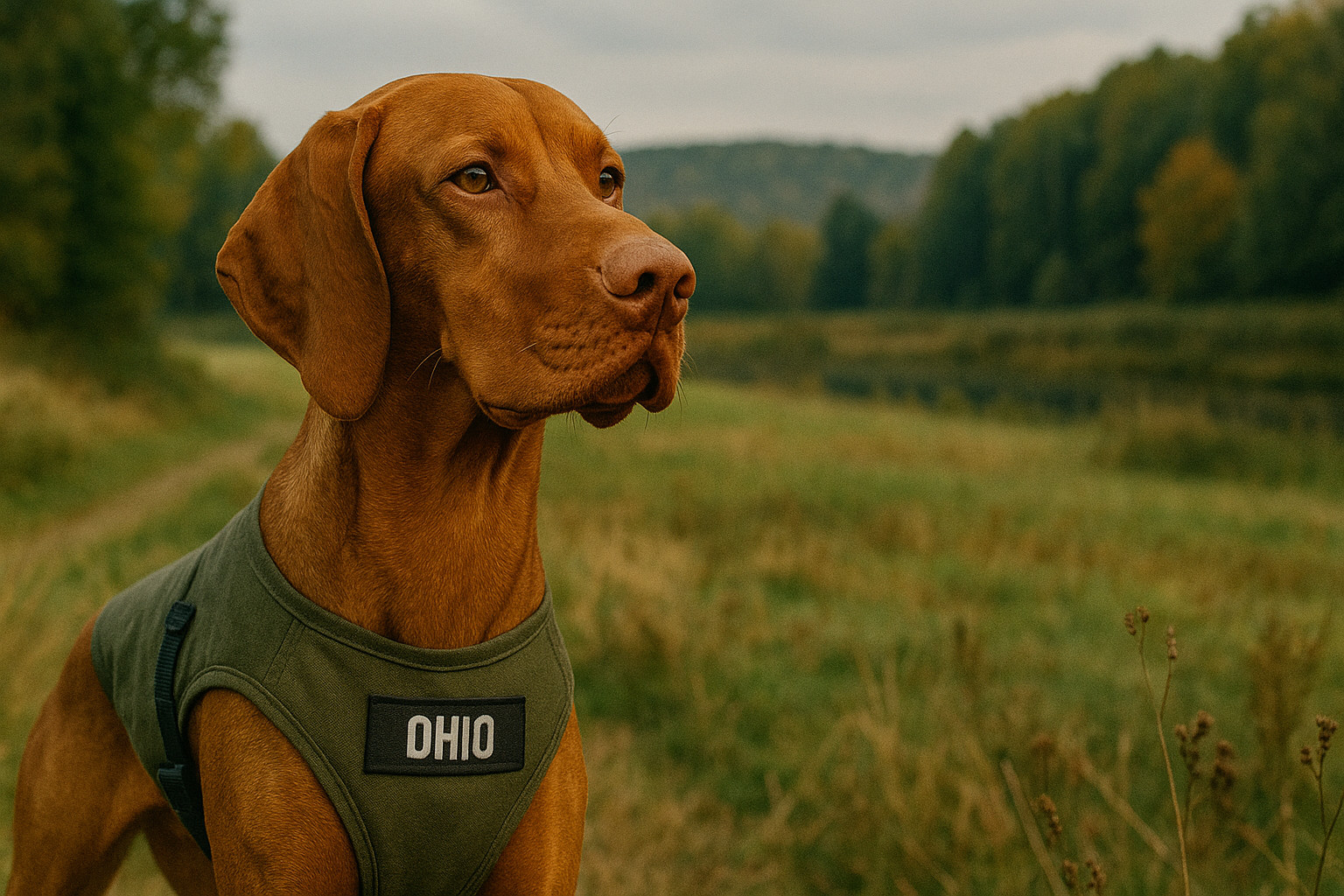
Overview of Service Dog and Legal Definitions in Ohio
What is a Service Dog?
In Ohio, as in other states, a service dog is defined under the Americans with Disabilities Act (ADA) as a dog that has been individually trained to do work or perform tasks for a person with a disability. These tasks must be directly related to the person’s disability, and the dog’s role is central to enabling the person to perform certain daily activities that they otherwise could not. It is important to note that only dogs are recognized as service animals under this definition, although the ADA makes some provisions for miniature horses under certain conditions.
How Service Dogs Differ from Other Types of Assistance Animals
Service dogs are distinct from other assistance animals such as emotional support animals (ESA) and therapy dogs. While service dogs perform specific tasks that mitigate the handler’s disability, ESA provide comfort through their presence and do not require specialized training. Therapy dogs offer psychological or physiological therapy to others, often in a clinical setting, and are trained for that purpose but not specifically for the owner’s disability. Under Ohio law and federal regulations, only service dogs have unconditional access to public accommodations and facilities.
Key Federal Laws Affecting Service Dogs (e.g., ADA, FHA, ACAA)
Several federal laws establish baseline rights for service dog handlers that apply in Ohio. The ADA ensures that people with disabilities have access to public spaces, accommodations, and facilities with their service dogs. The Fair Housing Act (FHA) prevents discrimination in housing and requires landlords to make reasonable accommodations for service animals. The Air Carrier Access Act (ACAA) pertains to airline travel, mandating that airlines allow service dogs to accompany their handlers in the cabin without additional charges.
State-Specific Service Dog Laws in Ohio
Housing Rights and Responsibilities
Ohio law aligns closely with the FHA in terms of housing rights for service dog handlers. Landlords are required to accommodate individuals with disabilities who use service dogs, even in properties with a no-pet policy. This accommodation is without charging additional fees or deposits for the service animal. However, tenants can still be held responsible for damage caused by the service dog. Ohio landlords are also prohibited from inquiring about the nature or extent of the disability but can request verification that the animal is trained to assist with the tenant’s needs.
Public Access and Accommodation
Under the ADA, service dogs have the right to accompany their handlers in all public places, and this is fully supported by Ohio state law. Public accommodations must allow service dogs to enter with their handlers, and this includes restaurants, hotels, retail stores, and theaters. However, the service dog must be under control, well-behaved, and not pose a threat to public safety. Businesses can ask two questions to verify the legitimacy of the service dog: (1) Is the dog a service animal required because of a disability? and (2) What work or task has the dog been trained to perform? They cannot request documentation or proof of the animal’s training.
Transportation and Travel Rules
Ohio law, in accordance with the ADA and the ACAA, supports the rights of service dog handlers in various modes of transportation, including buses, trains, and airplanes. Service dogs must be allowed to accompany their handlers on public transportation and taxis without additional charges. Airlines are required to allow service dogs aboard flights in the cabin, though they may need documentation that confirms the dog’s role as a service animal, particularly for flights longer than eight hours or for unusual breeds.
Employment and Workplace Considerations
Employers in Ohio must comply with the ADA, which requires reasonable accommodations for employees with disabilities, including the presence of service dogs in the workplace. Employers cannot deny employment or job benefits to individuals because they require a service dog. While employers cannot ask for documentation of the service dog’s training, they may require proof of the employee’s disability that necessitates the service dog’s presence.
Documentation, Requirements, and Processes in Ohio
Service Dog Documentation and Who Can Issue It
In Ohio, service dog handlers are not required to have or provide documentation to gain access to public places and transportation. However, for housing and air travel, some form of certification from a healthcare provider verifying the need for the service dog might be requested. Only licensed healthcare practitioners can provide such verification, specifically addressing the necessity of the dog for the handler’s disability-related needs.
Landlord, Business, and Provider Verification Rules
Landlords and businesses in Ohio may seek verification that an animal is a service dog and not a pet, but they are limited in the questions they can ask. They cannot ask for medical records or request a demonstration of the tasks the service dog performs. In most public access scenarios, verbal confirmation from the handler is deemed sufficient. However, for housing, written documentation from a healthcare provider confirming the need for the service dog is often standard practice.
Rights, Limitations, and Legal Risks
Rights Service Dog Handlers Have in Ohio
Service dog handlers in Ohio have the right to access all public areas, transportation, and housing without being discriminated against due to their disability. They cannot be charged extra fees for their service animals, and they are entitled to any necessary accommodations under both state and federal laws. Handlers are also protected from intrusive questioning about their disabilities and the nature of their medical conditions.
Limits on Service Dog Protections and Common Restrictions
While service dog handlers in Ohio enjoy many protections, there are limits. Service dogs must be under control and cannot cause disturbances or pose a health or safety threat. Handlers can be asked to remove their service dogs if these conditions are violated. Additionally, certain areas, such as sterile hospital operating rooms and certain restricted zones in food manufacturing facilities, might be exempt from standard access regulations.
Penalties for Fraud or Misrepresentation
Ohio law imposes penalties for misrepresenting a pet as a service animal. This includes potential fines and community service mandates, reflective of a broader trend to curb the misuse of service dog privileges. Misrepresenting an animal as a service dog not only undermines the rights of legitimate service dog handlers but can also lead to legal consequences and further restrictions.
Practical Guidance for Service Dog Handlers in Ohio
How to Qualify for a Service Dog Legitimately
To qualify for a service dog in Ohio, one must have a recognized disability that substantially limits one or more major life activities. The individual must require a service dog to mitigate their disability through specific trained tasks. Prospective handlers should work with reputable organizations to train and verify their service dogs.
How to Talk to Landlords, Airlines, and Employers
When communicating with landlords, airlines, or employers in Ohio, service dog handlers should be prepared to explain (without detailed disclosure of their disability) the tasks their service dog performs. Providing additional documentation from a healthcare provider, while not always legally required, can often expedite the process and ensure smooth interactions.
Summary of Service Dog Laws in Ohio
Understanding the laws related to service dogs in Ohio is crucial for handlers. Federal and state laws provide robust protections, balancing public access and safety concerns. Handlers must stay informed of rights and responsibilities to effectively navigate potential legal issues.
**- Service dogs are protected under federal ADA and are recognized exclusively as dogs trained for specific tasks related to a handler’s disability.
- Ohio law mirrors federal regulations, offering broad access to public spaces and housing, but handlers must ensure their dogs are well-behaved and under control.
- Misrepresentation of pets as service animals is penalized under Ohio law, with potential fines for offenders.
- Service dog handlers should prepare to provide verification via licensed healthcare professionals for housing and extended travel requirements.
- Engagement with authorities and service providers should remain courteous, informed, and prepared to explain the necessity of the service dog, ensuring smooth access and accommodation rights.**
Get Your Documents
Example State Cards





